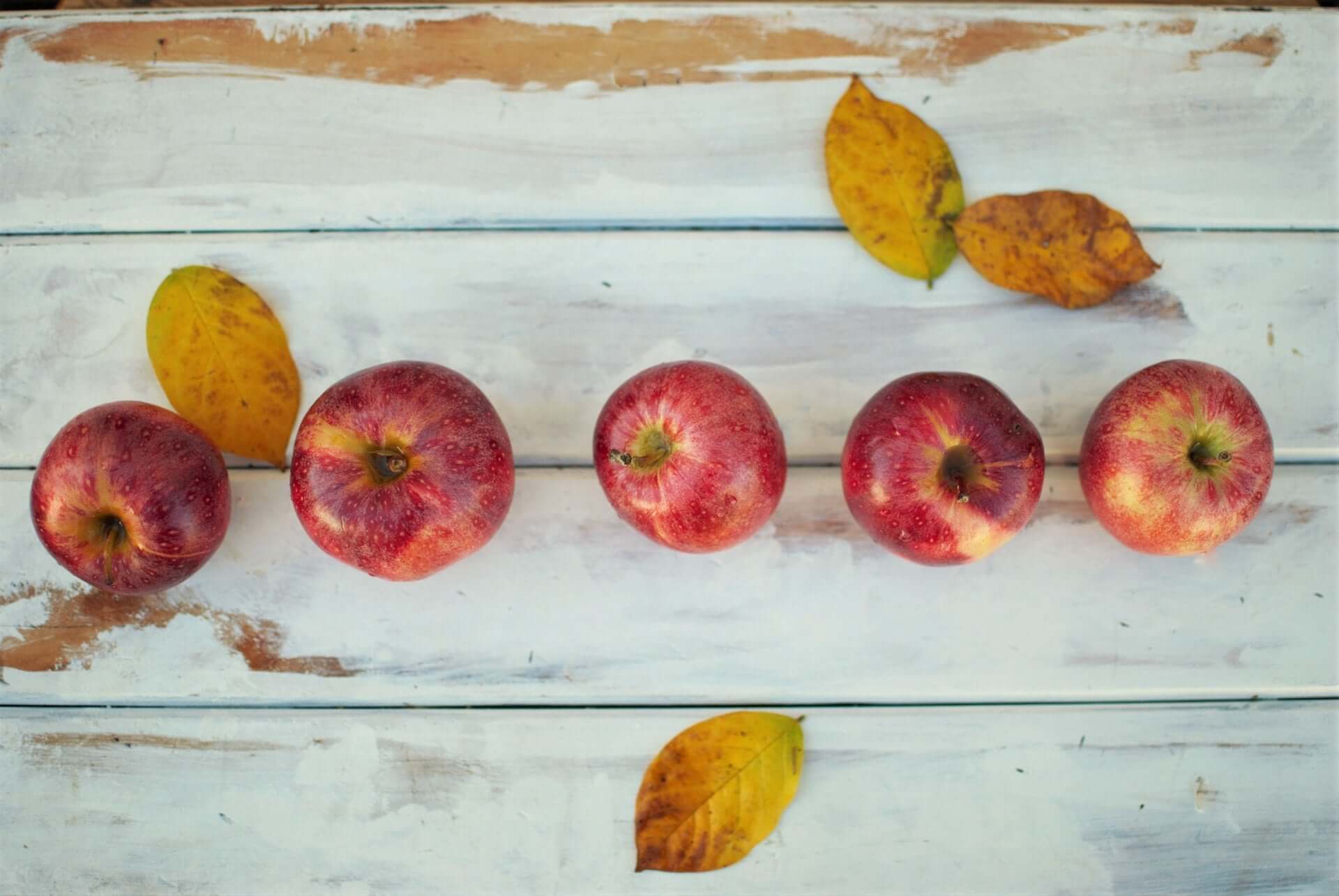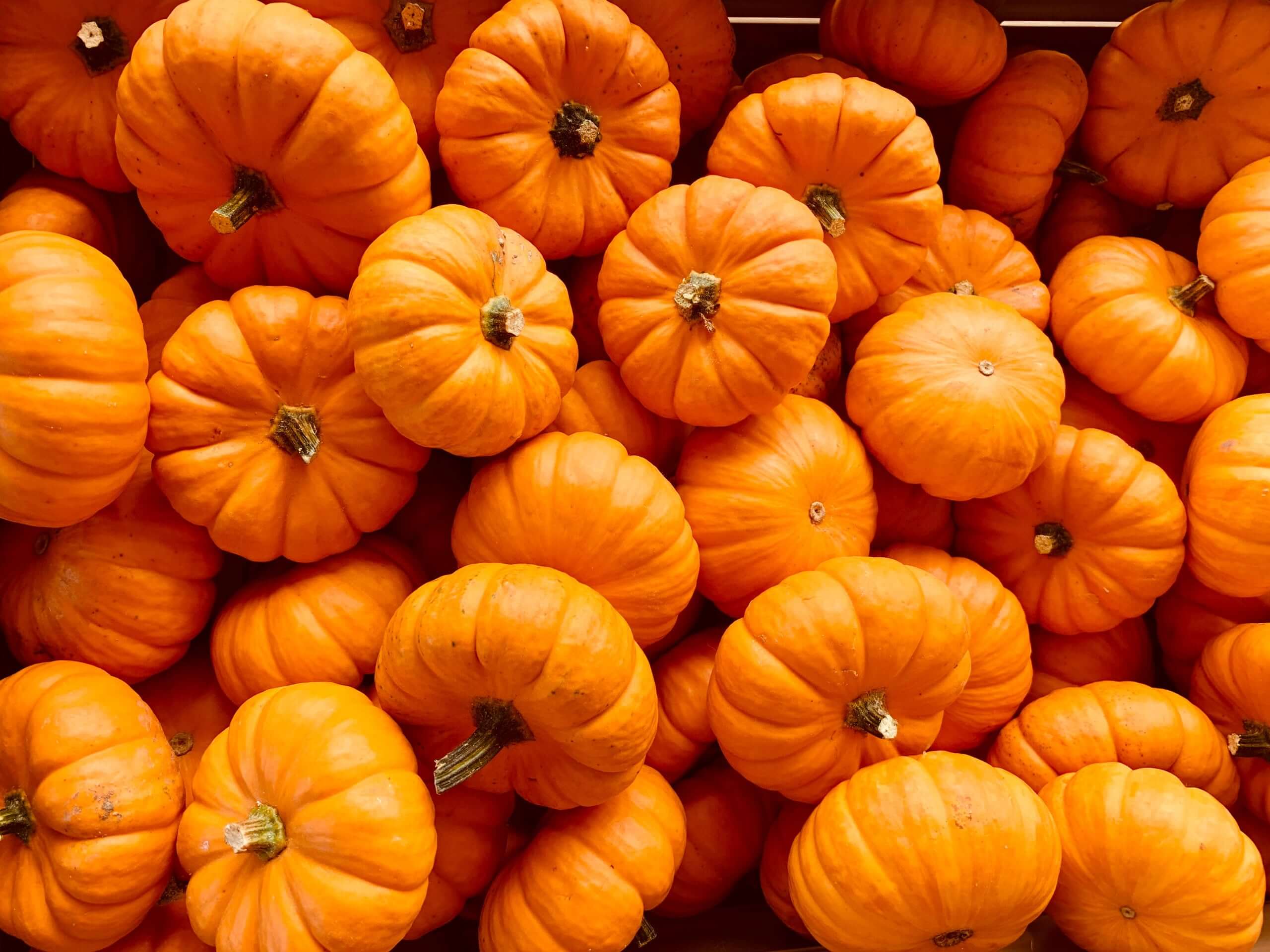
Inhaltsverzeichnis
Fruit in autumn? Which varieties now have season
Although autumn doesn't offer the same fruity variety we enjoy in the summer months, it still has a lot to offer. Find out which fruits are currently being harvested locally here.
What fruits are available in autumn?
1. Apples
Some apple varieties are available as early as summer, but the apple harvest doesn't really get going until autumn. In our latitudes, apples are a true classic fruit, so I probably don't need to say much about the taste of this fruit, do I? 😋
We also know that apples are healthy. But why exactly? Vitamins? Yes, but this round fruit also contains a whole host of other health benefits. For example, apples contain many valuable vitamins and phytochemicals that protect the body's cells from disease-causing free radicals.
The fruit can also help with digestive problems or an irritated stomach: Apples contain fiber, including pectin, which has a balancing effect and promotes healthy digestion.
Apples can be enjoyed not only in the classic way, i.e. raw as a snack, but also wonderfully incorporated into a variety of dishes. My absolute favorite, perfect for the colder months, is a nice, warm apple crumble (with vanilla ice cream). 🤤).
2. Blackberries
Attention berry fans! While most berries are harvested mid-year, we still have one small, powerful berry available until October: the blackberry. Despite its health benefits, hardly anyone would name the blackberry their favorite, right? 🤔Perhaps this is due to its sweet-sour flavor and forest aroma, which doesn't appeal to everyone. Nevertheless, in my opinion, the blackberry is significantly underrated...
Similar to apples, blackberries contain vitamins and fiber. Vitamins E and A, as well as the high antioxidant content in the berries, are considered "natural anti-aging agents" that counteract premature signs of aging. Flavonoids (phytochemicals with antioxidant properties) protect cells and help regulate high blood pressure. They can also protect against cardiovascular disease. The calcium they contain strengthens bones, and the potassium has a gentle diuretic effect.
Isn't it always amazing how many valuable ingredients are contained in such small, inconspicuous gifts of nature? :)

Photo by Nick Sarro on Unsplash
3. Quinces
A friend of my mother's has several quince trees and leaves a considerable amount of quinces to my mother every autumn. My mother then makes quince jelly or jam from them, and the whole house smells wonderfully sweet of the fruit. For me, quinces are the Autumn fruit par excellence.
The harvest season for this fruit is short, occurring between September and early November—precisely in the autumn months. Quinces are still unfamiliar to many. Visually, they resemble a cross between an apple and a pear. Their bright yellow color, however, is more reminiscent of a citrus fruit, and their flavor is intensely fruity and sweet, yet also lemony.
Quinces are rarely found in supermarkets, so you should look for them at the weekly market or a Turkish supermarket (or at a friend's or neighbor's who has a tree in their garden).
Quinces also contain pectin, which soothes an irritated intestine and can help with digestive problems. In addition, the quince flesh contains tannins, which have antibacterial properties and thus protect against harmful bacteria.
Before processing, the fine fuzz on the skin of the fruit should be wiped off with a cloth, as the essential oils contained therein can negatively affect the flavor. After washing, the pulp can be separated from the core. However, the seeds should not be thrown away! Dried seeds can be sucked like candy for a cough or sore throat. The mucilage (nasty word, right? :D) has a healing effect and soothes the throat and pharynx. However, it's best not to bite or chew the seeds due to their very bitter taste...

Photo by Markus Spiske on Unsplash
4. Grapes
Last but not least on this short list: grapes. Everyone knows them, and almost everyone loves them. Grapes are among the oldest fruits of all. They are available here between August and November and are a popular snack. While slightly underripe grapes still taste tart, very ripe grapes are sugary sweet. This sweetness and their bite-sized size make them a favorite with children, too.
Admittedly, there are other fruits that boast more vitamins or less sugar. But that doesn't make grapes unhealthy or unimportant: According to a study, the plant compound resveratrol, which grapes contain, can significantly improve our memory. This substance also has a positive effect on our blood circulation.
Other important components of grapes are oligomeric procyanidins (OPCs), which have significant health benefits. Among other things, they help with joint pain, lower cholesterol levels, and slow down the aging process of cells.
A large part of these beneficial ingredients is found in the skin and seeds of grapes. So if you want to everything To benefit from what the grape has to offer, you should choose the traditional version with seeds more often. :)
If you would like to learn more about healthy eating, mindfulness or sustainability, Check out more exciting blog articles on these topics here.

Photo by Markus Winkler on Unsplash



























Leave a comment
This site is protected by hCaptcha and the hCaptcha Privacy Policy and Terms of Service apply.